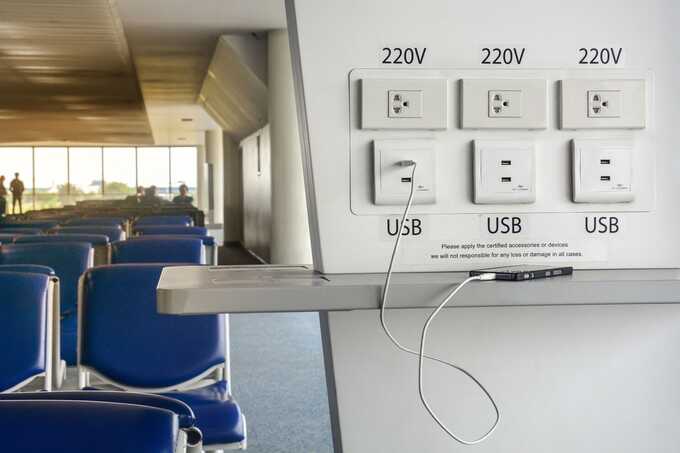FBI issues stark warning to holidaymakers who charge their phone at airport

FBI urges public to avoid airport USB ports to charge mobiles and electronic devices, with hidden dangers behind seemingly convenient charging stations revealed
With Easter weekend fast approaching and many families on the move, a stark warning from the FBI regarding public USB ports has caught many travellers off guard. After urging travellers to avoid using public USB ports for charging their mobile phones and electronic devices at the airport, Jae Ro, Marketing Manager of SIGNAL + POWER, the global plug adaptor manufacturer has explained the hidden dangers behind those seemingly convenient charging stations.
Malware Mayhem: Public USB ports offer a tempting solution when you’re low on battery and have a long journey ahead, but the convenience comes with a significant security risk. These ports can be tampered with to install malicious software (malware) on your device. This malware can lurk undetected, quietly stealing sensitive information like passwords and banking details.
’Juice jacking’ is a hacking technique where cybercriminals modify charging stations to install malware. The malware tricks your phone into thinking it’s connected to a trusted device, granting thieves access to your personal information, such as passwords, credit card details, and your browsing activity. Once infected, your phone becomes vulnerable not just at the airport, but wherever you take it.
But even if a charging station hasn’t been tampered with, there’s still a risk of your data being exposed unintentionally. Charging stations can transfer both data and power. While phones prompt users to choose between ‘Charge only’ and ‘Transfer files’ modes, this protection is often bypassed with charging stations. As a result, your device could be vulnerable to data interception or exploitation. This stolen data can later be used for identity theft or sold on the dark web.
What to Do Instead: Safeguarding Your Phone
- Invest in Portable Chargers: Carry a portable charger to avoid public charging stations, keeping your device powered safely while on the move.
- Stick to Trusted Sources: Only use personal chargers to minimise the risk of data exposure while charging your phone outside. Alternatively opt for wall outlets over USB ports which pose a lower security threat.
- Don’t Transfer Data: If you must use a public station, disable data transfer on your phone before connecting it. This guarantees that only power flows through the cable.
- Consider ‘Data Blocker’ Cables: A USB data blocker prevents data transfer between your device and the charging station, allowing only power transfer.
Read more similar news:
Comments:
comments powered by Disqus

































